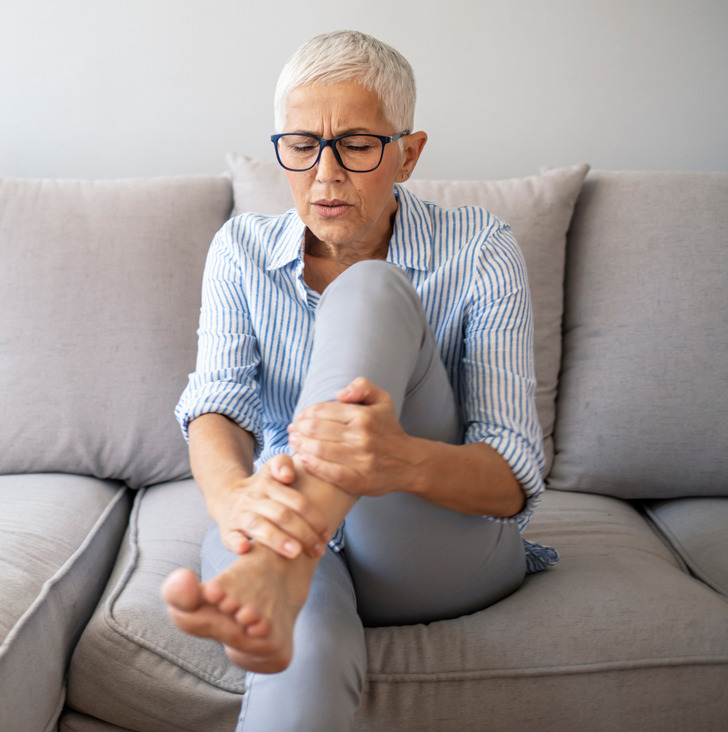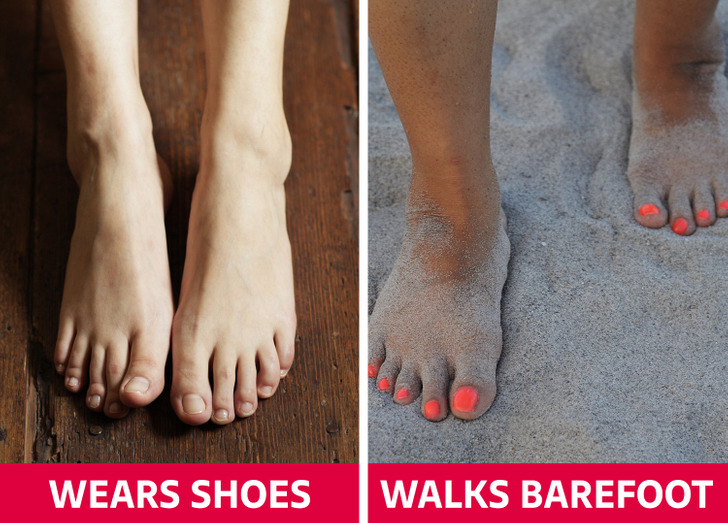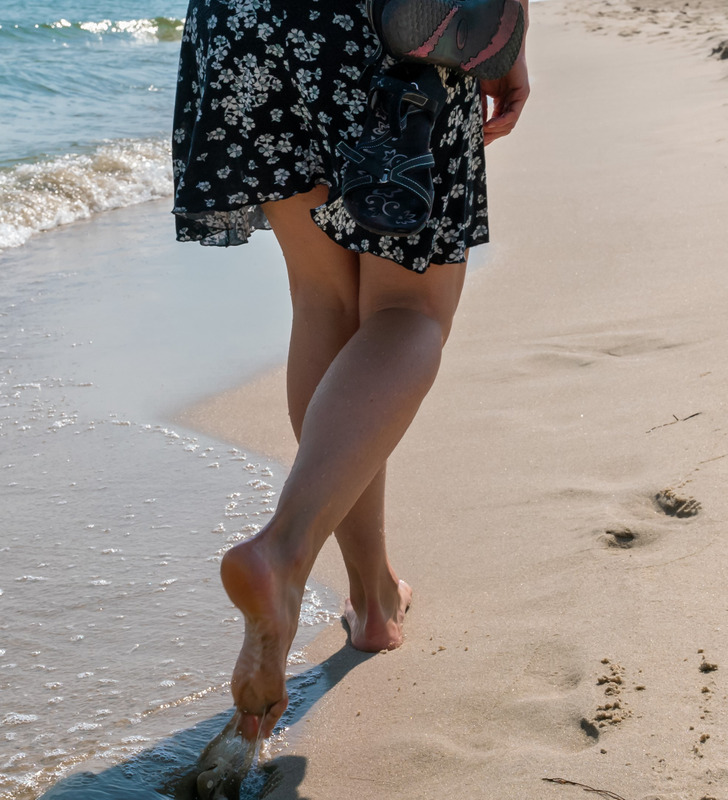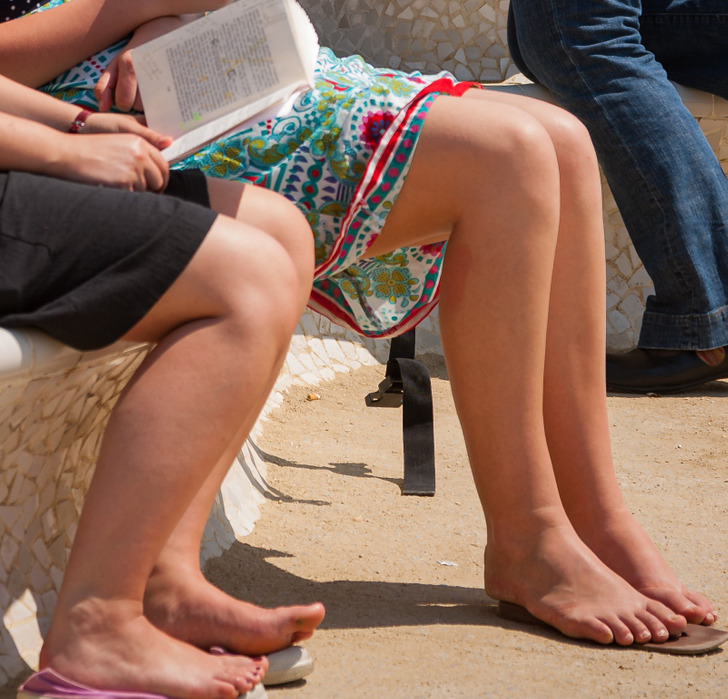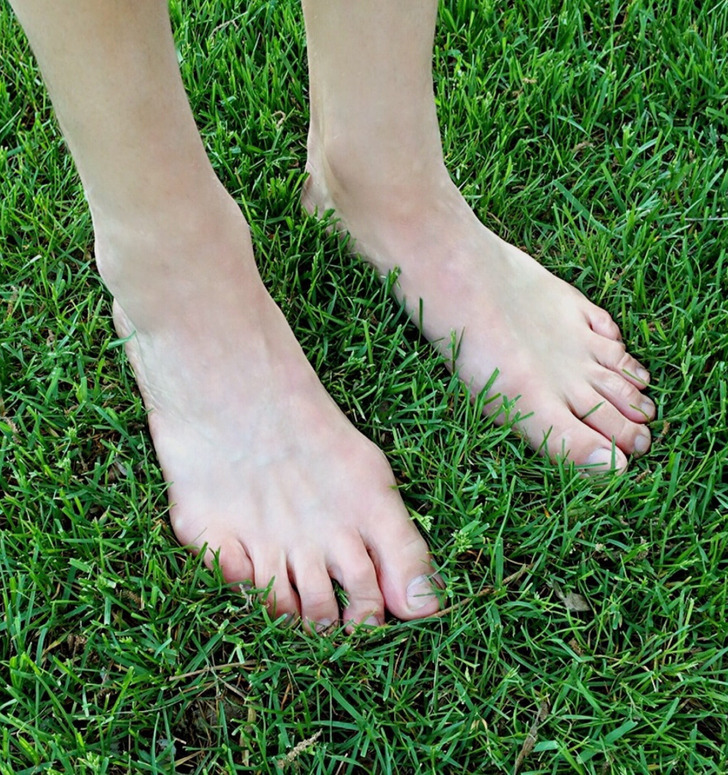9 Reasons Why Walking Barefoot May Not Be That Healthy
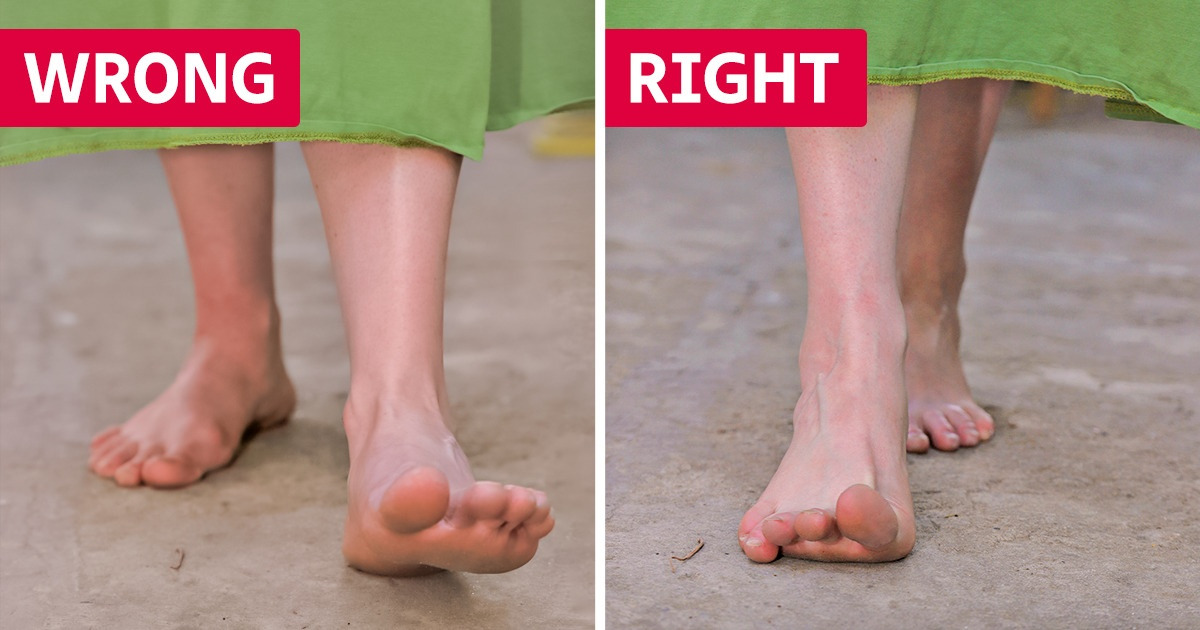
Most of us tend to think that walking barefoot is a quite healthy thing to do. So, on a warm day, we can happily take off our shoes and walk barefoot on green grass or on the beach. We try not to wear shoes at home too. However, according to experts, walking barefoot can do more harm than good.
At CHEERY, we decided to find out what risks walking barefoot can carry. And in the bonus section, you’ll find a few tips how to make these walks more safe.
You may get back pain.
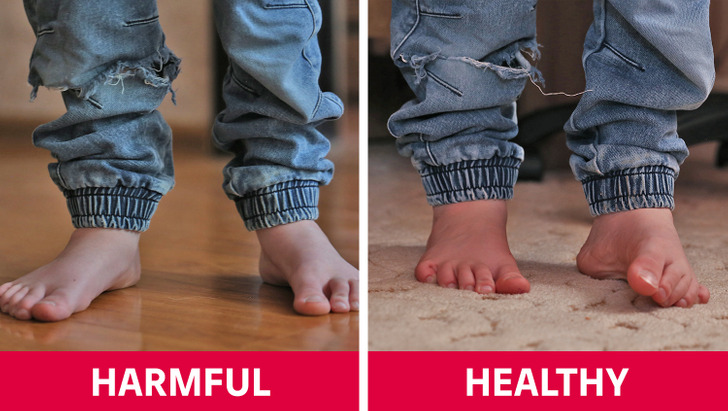
When a person walks barefoot, their feet don’t get proper support. As a result, your feet can collapse affecting your gait and posture. The load on the feet and spine increases. Therefore, long walks barefoot may lead to pain in the ankles, knees, and back. Sometimes you may feel discomfort even in your shoulders and neck.
To avoid these consequences, you need to carefully monitor the position of your feet and try to avoid walking on such hard surfaces, as wood, concrete, or tiles. At the same time, walking on carpets and mats will be less harmful.
Your Achilles tendons may get inflamed.
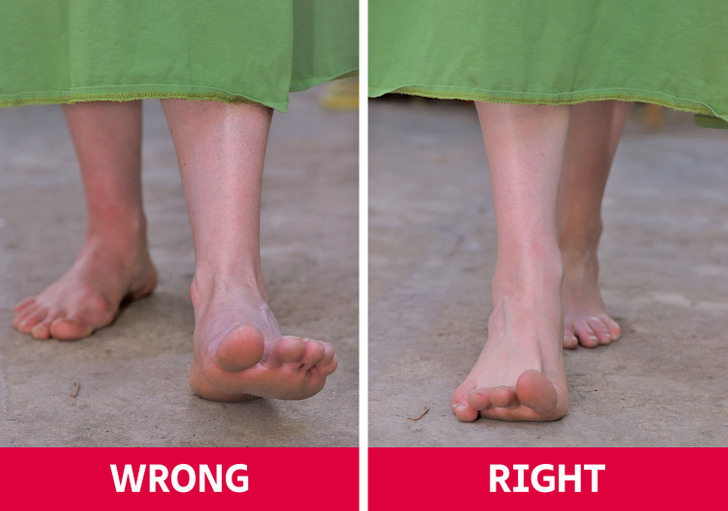
Walking barefoot alters the distribution of body weight and pressure across the foot muscles which tense excessively to maintain balance. And since your heels touch the ground, the tendons that connect them to the legs gradually stretch. This can lead to acute or chronic inflammation of the Achilles tendon.
The right way of walking is very important here. You should evenly distribute your body weight over the entire sole, and not to fall on your heel. When running barefoot, you should land on your mid-sole and then roll through to the front of your toes. You should avoid letting your feet slap the ground.
The skin on your feet may get dry and cracked.
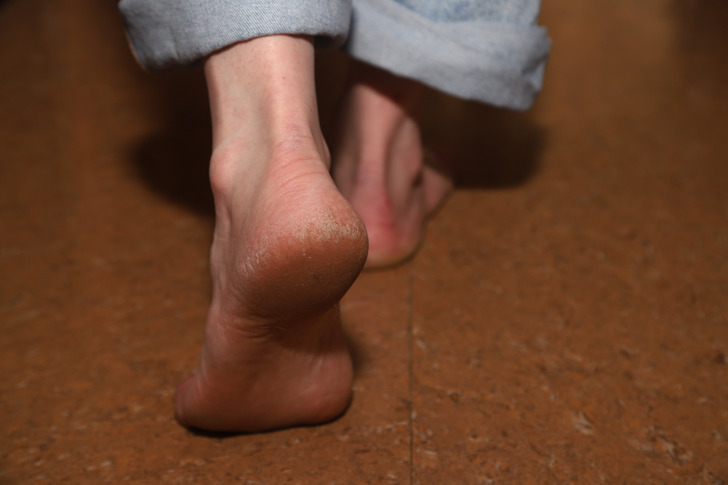
If your feet are not protected, their skin quickly loses moisture and becomes dry. Besides, the constant pounding and pressure on the feet when walking barefoot can cause cracks on the skin at the heels which can lead to bacterial infections.
To prevent these consequences, it’s worth drinking plenty of fluids and thoroughly moisturizing the skin with skin care products, especially in the problematic areas.
Sometimes walking barefoot can lead to plantar fasciitis.
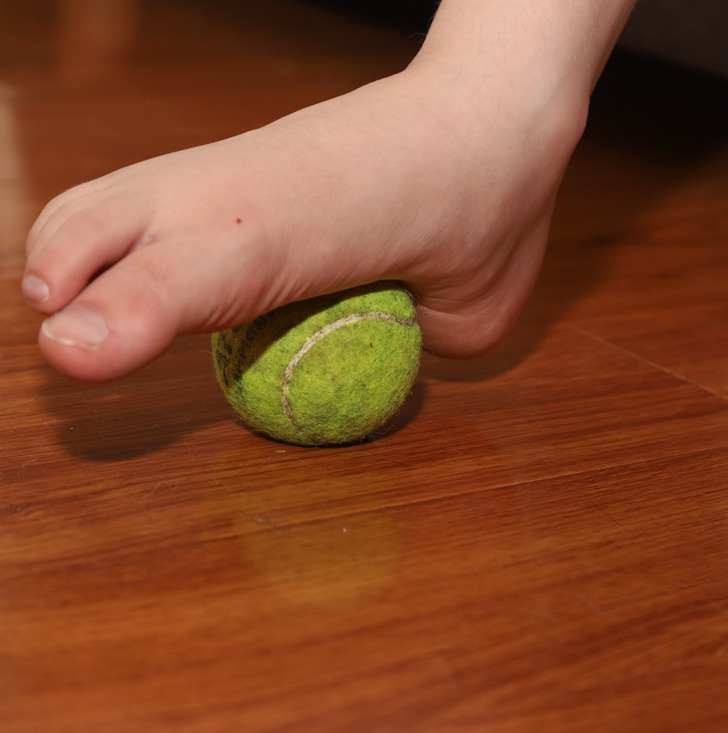
While walking barefoot, your feet are protected only be a thin layer of fat. Regular walking on hard surfaces breaks this fat pad down. As a result, your plantar fascia begins to flatten and get small tears which can lead to inflammation.
It’s worth performing stretching exercises for the feet and toes. For example, roll a tennis ball around with your feet or try to pick up small objects with your toes from the floor.
There is a risk of losing balance and falling.
Your feet may become wider over time.
A study showed that regular barefoot walking can make your feet wider. But this can only happen if you don’t wear shoes for a long period of time. If you do it only occasionally, this won’t really affect the shape of your feet.
You may get infected with parasites.
Walking barefoot on green grass or even on the beach is not always safe because parasites can be found there. Beach sand, for example, where the environment is warm and humid, can be inhabited by hookworms and roundworms. If you know that dogs often come to the beach, it’s best to take safety measures and wear slippers there.
Walking barefoot may cause skin irritation.
Our feet have sweat glands. If in warm weather, you avoid wearing socks which can absorb sweat, your feet will be wet all the time. And this can cause skin irritation and cracked heels, or lead to the development of fungus.
There is a risk of getting sunburn and a more dangerous disease.
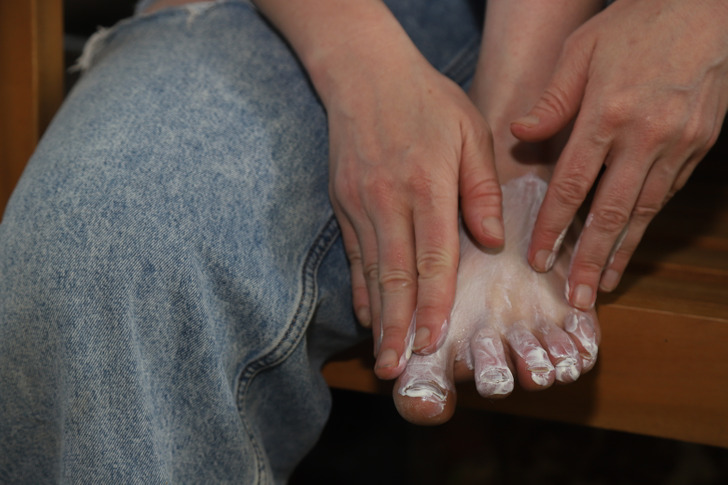
When using sunscreen, we sometimes forget about our feet. And ultraviolet radiation can harm any unprotected part of your body. Walking barefoot for a long time can result in serious sunburn. If you don’t tend to protect the skin on your feet, the risk of developing cancer increases.
So, you should apply sunscreen to your feet and toes, including between your toes.
Bonus: How to walk barefoot safely
It is possible to avoid almost all the negative consequences of walking barefoot mentioned above. Moreover, walking barefoot is good for your immune system, it strengthens the foot muscles and improves posture. You just need to keep the following tips in mind.
- Don’t walk barefoot in public parks or unfamiliar places where sharp objects or dangerous microorganisms can be found in the grass or sand.
- If you wear shoes all the time and want to try walking barefoot, it’s best not to rush things. Start with short walks at home on a carpet or other soft surfaces.
- It’s important to use the correct walking technique and do stretching exercises.
Do you like to walk barefoot?
